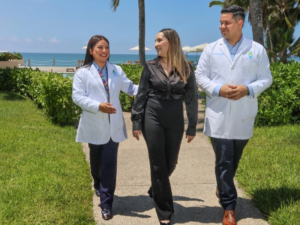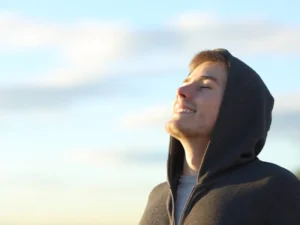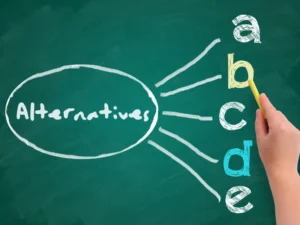What happens in Treatment?
This is a question that many ask themselves when at the beginning of their (alcohol and drug use, eating disorders, compulsive gambling, anxiety, and depression) recovery process.
One of the key elements they find is when they come together with other peers in the treatment community is the “something different” in themselves is shared by the others. They realize that they are usually in constant contact with feelings and the lack of knowing how to express them in a healthy way. Through the identification of past trauma and loss along with maladaptive coping habits within their treatment community they begin to have a vision of hope. They begin to feel happiness and find joy in the simple group activities such as (beach walks, sweat lodge, yoga, experiential groups etc.) while going through the evidence based therapeutic processes that are often complicated and painful yet proven methods of healing, they find peace.
When hearing this, the user along with many people who do not live with the disease of alcoholism and or addiction will ask why does one need to go to treatment for 30 days or more?
For a substance user or a user with a compulsive behavior problem this is necessary because most people seeking these answers have tried to quit on their own and have failed countless times. They have gone maybe days or weeks only to find that they end up back in the cycle of making promises they can’t keep to themselves or their loved ones. And this only brings a sense of shame and more unnecessary loss. Many will find themselves isolating, unable to share their pain, living in depression and finding no enjoyment in life. In the process of addiction these negative patterns become a person’s normal behavior and it becomes hard to believe there is a better way of living.
When people make the decision to come to Oceanica for treatment they usually believe that they will finally stop using and getting negative consequences. While this is the major reason for making the decision to enter treatment it is not the main goal. That would just be called abstinence.
What is really sought in a recovery process is actual “sobriety” … Sobriety is when the person in addiction stop’s using a substance along with their compulsive behavior and makes a genuine change in their way of addressing themselves, people and how they are living life. Their able to resolve the conflicts that brings them into treatment. For example, they begin to identify their feelings, share them with their peers and their clinical teams who they have found they trust and even begin to ask for help. They no longer have a need to isolate themselves, they learn to find healthy leisure activities, communicate assertively and honestly, establish limits and boundaries, develop a sense of responsibility, structure, discipline and again begin to see hope in themselves which awakens a sense of life.
Another very important aspect is that most rehabilitation programs like ours include family participation through psychoeducation, therapeutic tools, and self-care recommendations. This provides a foundation that when the person leaves the center, he/she has a family system that has understanding and meaningful support for long lasting recovery.
In answering the initial question of WHAT HAPPENS IN TREATMENT?
It is the precise working with a multidisciplinary team where medical, psychological, nutritional, and spiritual come together for the person to create a life plan so that there is a quality of life and not just abstinence. When the person in treatment finally connects with the experience of change in his/her life from his/her painful past, it is where he/she finds hope, self-knowledge, self-regulation, and can learn to live emotionally stable. Inpatient treatment sets the recovery journey thus returning the person to a newfound quality of life with skills to maintain a life free from drugs, alcohol, and live with mental wellness.
Psic. Leonardo Cuauhtémoc Arvizu Macías
Ced. Prof. 11918398
Case Manager
You may also be interested in: Anxiety Treatment: Different Aspects of the Disorder












